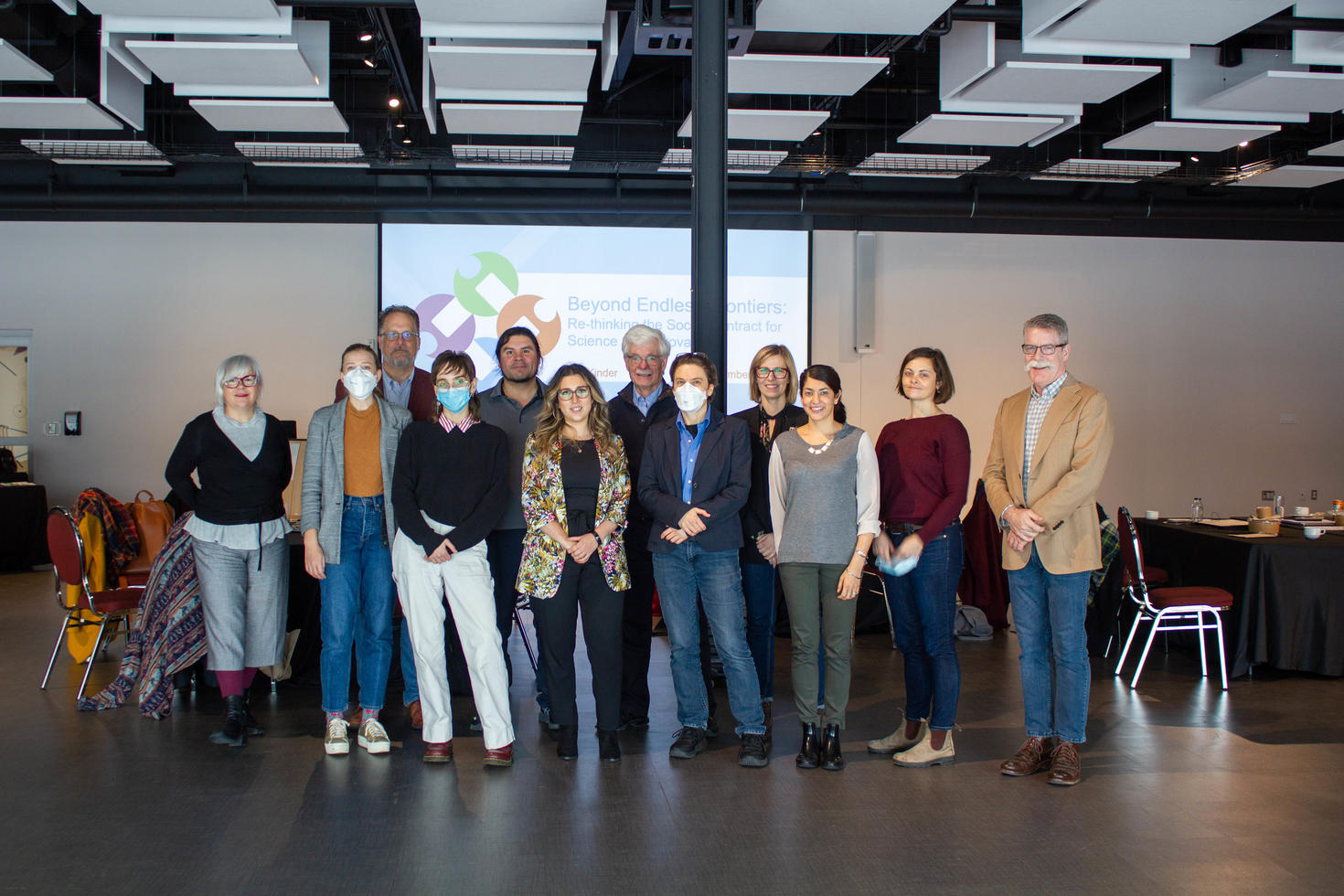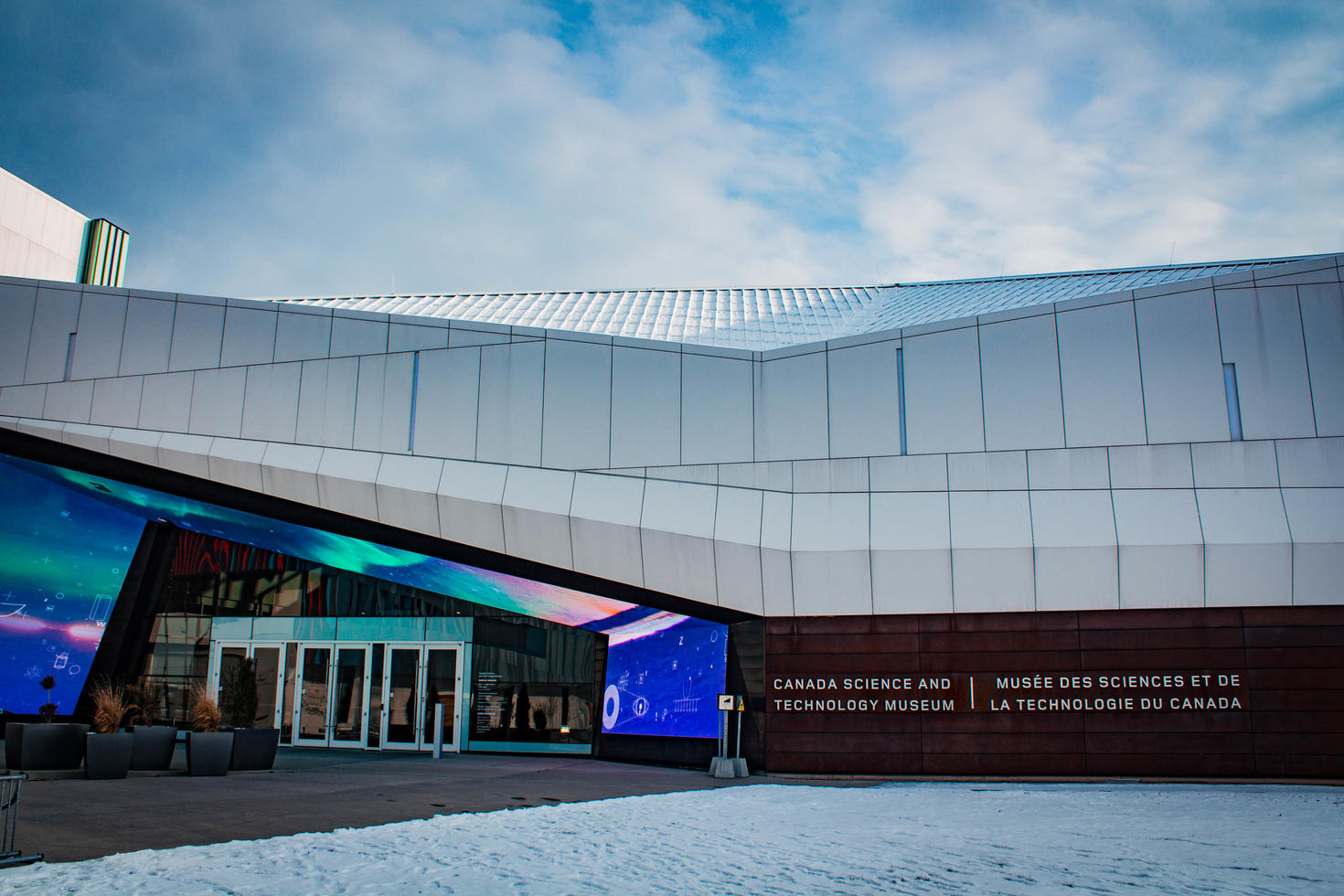On Saturday, November 19th, 2022, Sandra Schillo, Jeff Kinder and Rhonda Moore, Co-Directors of the Beyond Endless Frontiers Project, gathered 20 project collaborators, partners and advisors, virtually and in person at Ingenium’s Museum of Science & Technology, for a full day workshop to:
-
Refine the project goal and objectives
-
Explore areas of overlap and interdependency across the project’s six research themes
-
Establish next steps
Project Overview:
There is increasing tension in the relationship between Canadian society and the scientific enterprise; symptoms of this tension include a decline in trust of science and growing questions about the value of science and legitimacy of scientific authority. At the same time, science has an increasingly important role to play to address challenges facing society such as climate change, energy security, poverty.
The goal of this SSHRC Partnership Development Grant is to examine the post-war social contract that underpins Canada's scientific enterprise and explore the elements of a new policy framework that meets the needs of contemporary Canadian society.
The objectives of the project are to (1) identify and examine elements, assumptions, values, and biases of the post-war contract; (2) work with a multisectoral coalition of actors to research policy solutions, within and across 6 themes, that address and update the terms of the contract consistent with the contemporary context; and (3) disseminate and mobilize these insights and offer practical ways to reshape the policy framework for science and innovation.
Six Research Themes:
This project will examine the relationship between science and society across 6 key themes:
1-Inclusive Innovation, led by Sandra Schillo:
-
Much of the post-war social contract assumes:
-
innovation is an implicit outcome of a linear pipeline from basic through applied (natural) science and into commercialization, occurring mostly in developed countries.
-
a context in which natural scientists and downstream innovators were mostly white men.
-
Neither underlying assumption remains valid in today’s context.
2-Indigenous and Other Ways of Knowing, led by Kyle Bobbiwash:
-
The principles of our post-war scientific research norms represent solutions to Eurocentric philosophical debates and a framework to objectively evaluate or support various hypothesis testing through falsification.
-
Indigenous and Other Ways of Knowing can provide the greater science ecosystem with alternative approaches to conventional hypothesis testing to improve scientific approaches.
3-Mission-Directed Research, led by Peter Phillips and David Castle:
-
The post-war contract rejected scientific “planning” and argued that science best advances through “the free play of free intellects, working on subjects of their choice.”
-
Serendipity is not a strategy and there is little practical evidence that it has been instrumental in advancing our productive capacity. Many innovation scholars today argue that most if not all major successful innovations have emerged from some type of mission-oriented effort.
4-Science Communications, Outreach and Public Engagement, led by Rhonda Moore:
-
The post-war contract positioned science as a type of knowledge that could address the “unsolved problems” facing society, premised on several assumptions that no longer hold true:
-
that the challenges of scientists would represent those of broader society.
-
that science would share the language of everyday citizens.
-
that society would trust in and value the contributions of science.
5-Skills & Knowledge, led by Sandra LaPointe:
-
What skills need to be fostered to promote an ideal of scientific integrity that is compatible with increased trust and social acceptance of science? What do we know about current practices of university-based scientists when it comes to participating into the policy processes?
-
Research in this stream will allow us to determine:
-
what we know about the way in which university-based researchers contribute to policy and decision-making and to potentially identify gaps (around integrity/resiliency).
-
the extent to which science policy partnerships might benefit from “ethical, social and cultural” and collaborative/interdisciplinary skills-building.
6-Trust, Integrity, and Science Ethics, led by Jeff Kinder:
-
Under the logic of the post-war contract (and Michael Polanyi’s ‘republic of science’), only science can judge science and, therefore, the system should maximize the autonomy of science within the science-society relationship.
-
Societal demands for greater accountability of science were often met with portrayals of society as “anti-intellectual.” The contract argued that the science community’s internal control mechanisms (peer review, etc.) embody the principal ethical responsibilities of the system; any abuses are merely a “housekeeping” problem.
-
Yet, recent media reports of scientific misconduct raise concerns about scientific ethics and the scientific community’s ability to police itself.
What’s next?
The project will begin with a series of scoping literature reviews to inform six discussion papers, one for each theme. These papers will form the basis of a series of multi-sectoral discussions in the late Spring 2023. Data collected through the multi-sectoral discussions will inform planning for foresight exercises, scheduled for Autumn 2023.
To learn more about the project, the objectives, and the research questions, please visit the Beyond Endless Frontiers webpage, linked here.


